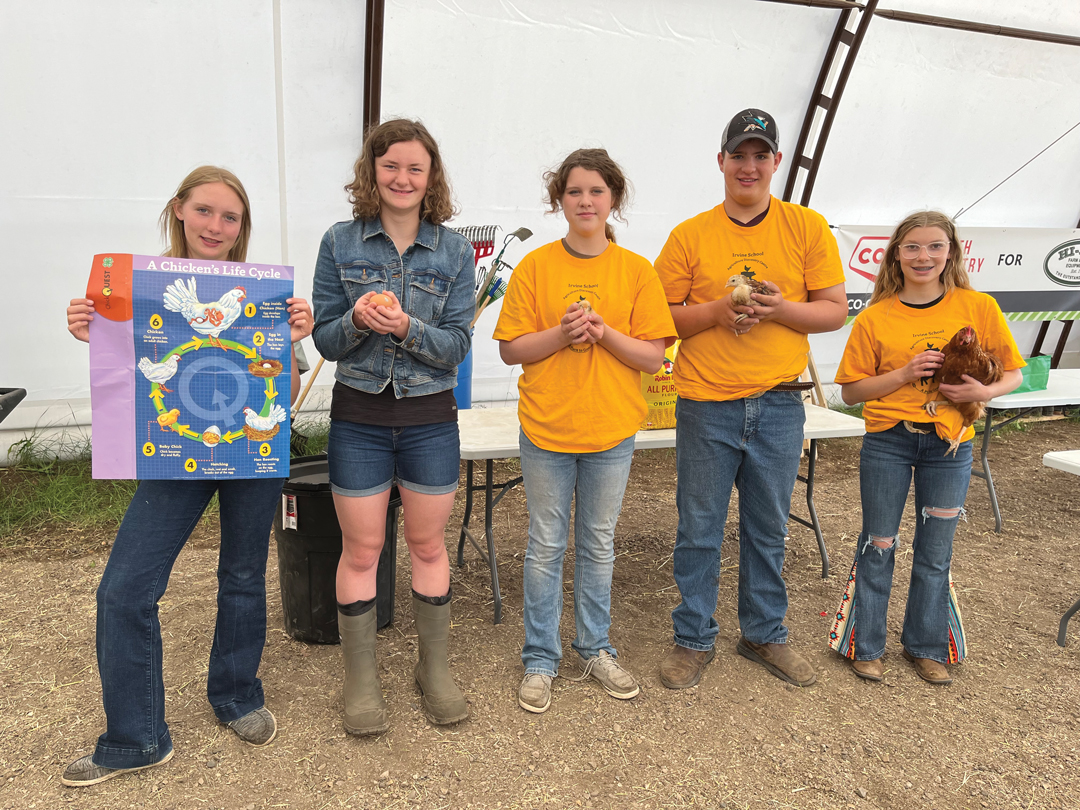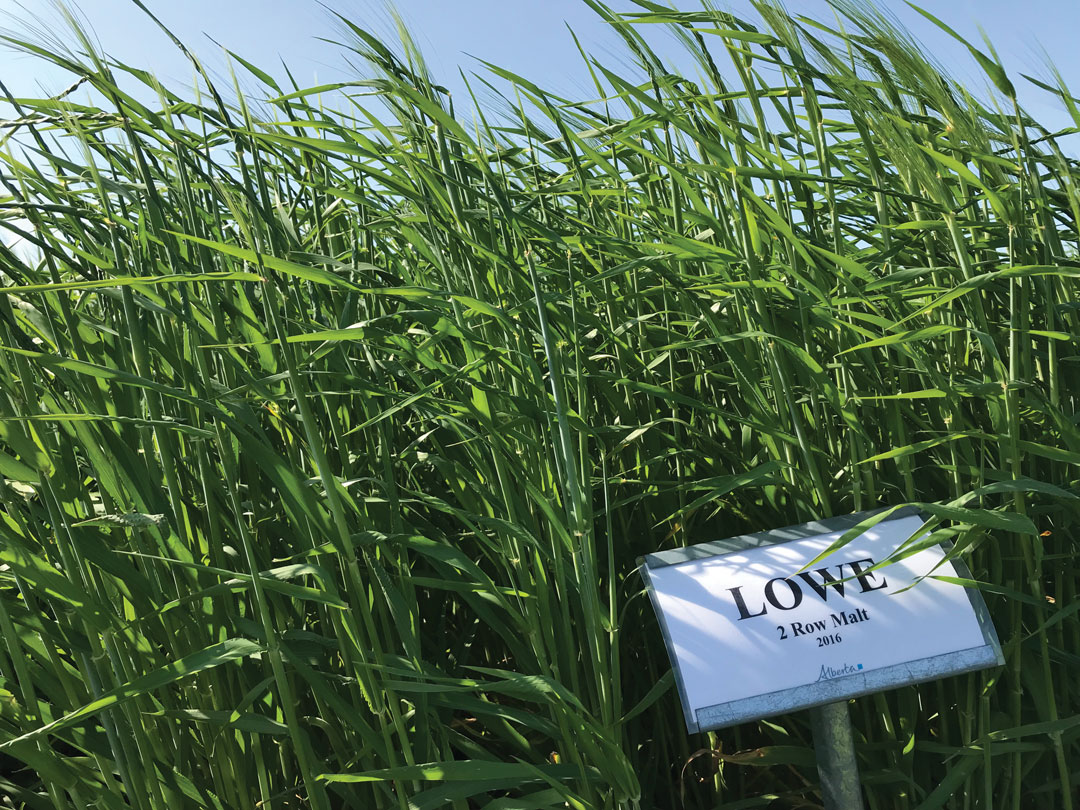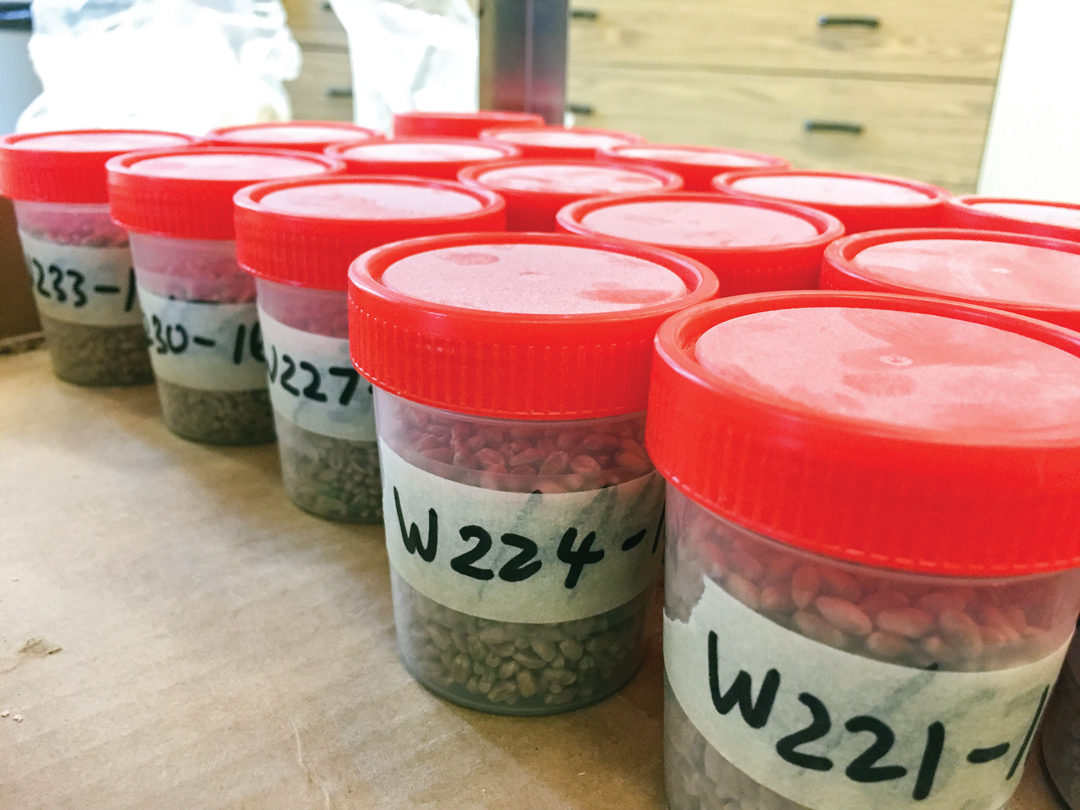STUDENTS GET THEIR HANDS DIRTY
BY BECKY ZIMMER • PHOTO COURTESY OF NICHOLE NEUBAUER
Given consumers often know little about where food comes from, Medicine Hat area farmer Nichole Neubauer felt she needed to offer agricultural assistance to her local school system.
Neubauer proposed the establishment of the Irvine School Agriculture Discovery Centre (ADC). “I really wanted to find a way I could educate beyond my gate,” said Neubauer, now ADC co-ordinator. With the enthusiastic support of the Prairie Rose School Division, the facility was constructed on the school’s grounds in the town of Irvine. Dubbed an “on-playground, student-led farm,” it was launched in spring of 2022 and operates from mid-April to October annually. It houses a large garden, greenhouse, crop demonstration plots and an apiary as well as a variety of livestock including pigs, goats, cattle and laying hens.
All students are considered caretakers and are responsible for the Centre’s operations. While daily farm activities are incorporated in the K-6 curriculum, Grade 7-9 students manage daily chores and several act as board members and committee chairs. While they are supervised, students debate options and bring forth ideas on the use of farm technology and practices they wish to try.
Studies incorporate information about food production and farming practices. As part of the immersive program, students do everything from plant garden produce to market finished livestock. The children’s first livestock auction raised $32,000 to fund the Centre’s continued operation.
The Centre fits right in with the school division’s curriculum, said Neubauer. It is geared to both students from a farm or city background, and they develop critical thinking as well as collaborative, creative and communication skills. Neubauer also hopes they gain a love of agriculture that may one day grow into a career in, for instance, the ever-expanding ag tech sector. “As they grow and evolve, they start considering and thinking about all the different possibilities for careers in agriculture that are out there.”
Fourteen-year-old Paige Munsch has gained plenty of agricultural experience on her family’s cattle farm—everything from checking the herd to fixing machinery. As secretary of the Centre’s board, she wants to share her appreciation for farming and rural issues with other young people. With the pragmatism of any good farmer, she emphasized students must realize the Centre is not simply a petting zoo. As its first-year chore leader, she gained leadership experience as she taught her classmates to feed animals and clean troughs and pens. “That is one of the biggest things everybody has to understand: how to be a leader,” she said.
Parents also appreciate the skills their children develop at the Centre. Now in high school, Craig Vossler’s son Reid was the first president of its board. Craig is proud of the work Reid did in the program. He believes young people are not generally aware of the work it takes to produce the food they eat, and the program lets them experience these tasks firsthand. “They get to see what real life is and figure out costs, like your rate of return on your investments. That’s kind of neat for them to see.”
Neubauer said she looks forward to expanding the program and incorporating additional teachable aspects of farm life into the curriculum. This will potentially include the creation of a large-scale vermicomposting system to illustrate the benefits of circular farm economics.







Comments